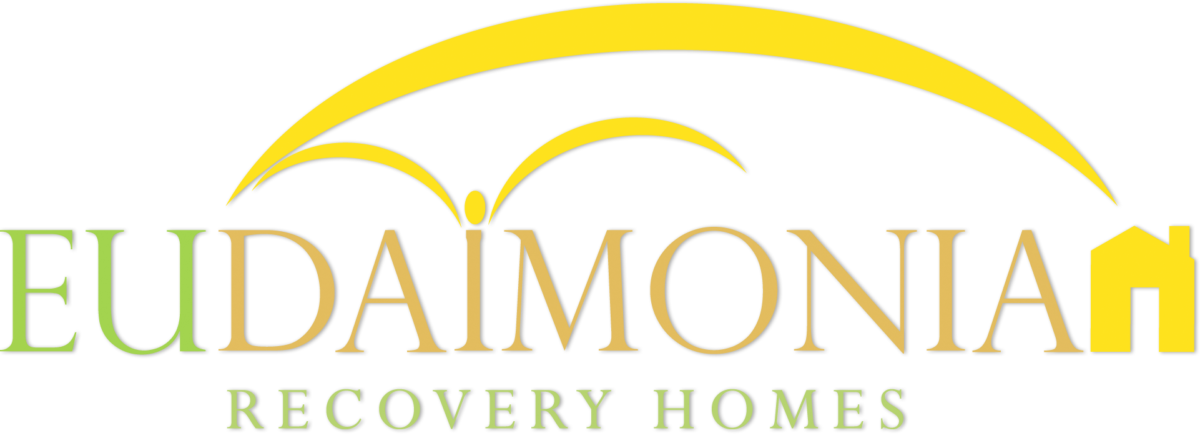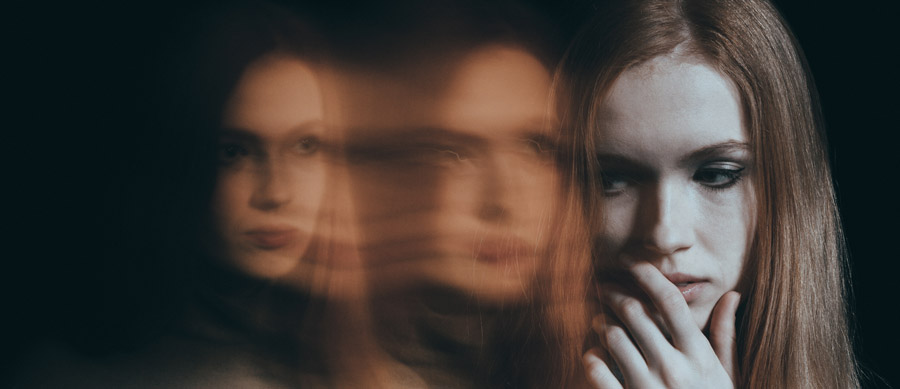Bipolar disorder and addiction often occur simultaneously, which can make getting sober and staying sober extremely difficult.
If you are recovering from addiction and have also been diagnosed with bipolar disorder, a combination of medication and psychotherapy may be an effective way to deal with bipolar depression in recovery.
Due to a history of substance abuse, you may prefer to not take prescription medication for bipolar disorder. In these instances, several natural remedies and lifestyle changes can help address symptoms of bipolar disorder. However, these lifestyle changes and natural remedies won’t cure bipolar disorder and may not be right for everyone.
If you’re recovering from addiction and you need help dealing with symptoms of bipolar depression, you should talk with your doctor or addiction treatment provider to determine the best possible options for you.
What Is Bipolar Disorder?
Bipolar disorder is a mental health disorder that causes unusual and severe shifts in mood, energy, concentration, activity levels, and the ability to carry out day-to-day tasks.1 It is characterized by periods of manic or depressive episodes, where a person experiences unusually intense emotions and uncharacteristic behaviors. These episodes can last for several days to several weeks and during an episode, the symptoms typically last every day for most or all of the day.
There are three types of bipolar disorder:
- Bipolar I Disorder: Someone with Bipolar I Disorder may suffer from severe manic or depressive episodes that last 7 days or more.
- Bipolar II Disorder: Someone with Bipolar II Disorder may also suffer from depressive episodes and manic episodes, but they aren’t the full-blown manic episodes that are common with Bipolar I Disorder. Instead, the person will experience hypomanic episodes during which they may be abnormally upbeat or have an exaggerated sense of well-being or self-confidence.
- Cyclothymic Disorder: Someone with Cyclothymic Disorder, which is also called Cyclothymia, will experience periods of hypomanic symptoms and periods of depressive symptoms that last 2 years or longer. However, the symptoms don’t meet the diagnostic requirements for manic or depressive episodes.
- Other types of bipolar disorder: Other types of bipolar disorder can be induced by certain drugs or alcohol or medical conditions.
The symptoms of bipolar disorder can vary from person to person and may vary over time. Some of the symptoms of bipolar disorder are also very similar to other illnesses, which can make diagnosing it difficult. People with bipolar disorder also have an increased chance of having another mental health disorder such as anxiety disorder, an eating disorder, or a substance use disorder.
What Is Bipolar Depression?
Bipolar depression is a part of the cycle of emotional highs and lows that people with bipolar disorder experience. People who have episodes of bipolar depression might experience a wide range of symptoms (listed below) but getting treatment can make a big difference. Also, knowing what triggers bipolar depression can help you anticipate major mood swings and handle them more effectively.
What Are Bipolar Depression Symptoms?
Bipolar depression can come on very abruptly. The symptoms of bipolar depression include:
- Feeling sad, worried, empty, worthless, or hopeless
- Feeling fatigued or like you have no energy
- Having problems sleeping or sleeping too much
- Being very forgetful
- Feeling restless
- Having difficulties completing basic tasks
- Being extremely indecisive
- Speaking very slowly
- Having an increased appetite and/or weight gain
- Having a decreased sex drive
- Losing interest in all activities
- Inability to experience pleasure
- Thinking about death or suicide
Can Addiction Cause Bipolar Disorder?
No, addiction doesn’t cause bipolar disorder, but chronic substance abuse can contribute to the onset of bipolar disorder. It can also work the other way: undiagnosed bipolar disorder may contribute to the development of substance abuse problems.
One of the major risk factors of bipolar disorder is substance abuse.2 About 1 in 5 people with bipolar disorder also have a substance abuse disorder, according to a recent article from the journal Social Psychiatry and Psychiatric Epidemiology.3 In some instances, drug or alcohol abuse can act as a trigger for the first episode. Other common risk factors include periods of extreme stress, trauma, or having a first-degree relative with bipolar disorder.
Sometimes individuals with undiagnosed bipolar disorder may also suffer from a substance use disorder as a result. For example, someone experiencing a manic episode may use addictive substances and engage in other high-risk behaviors while their judgment is impaired. Or, an individual with undiagnosed bipolar disorder may use drugs or alcohol to cope with the symptoms of bipolar depression.
People often suffer from addiction and bipolar disorder at the same time and it’s important to recognize that both disorders affect the way a person thinks, behaves, and experiences life. To treat one disorder, the other must also be properly addressed. Otherwise, a person is unlikely to achieve a full recovery from addiction and sustain a sober lifestyle.
What Triggers Bipolar Depression?
So, what triggers a bipolar episode? If you’re recovering from addiction, knowing these bipolar depression triggers can help you prevent them and anticipate potential relapse risks. That way, you can reach out for extra support before you do anything you may regret later.
Here are a few common things that trigger bipolar depression:
- Substance abuse: Abusing drugs or alcohol can sometimes bring on an episode of bipolar depression. Specifically, the aftereffects of alcohol and cocaine are associated with the worsening of depressive symptoms.
- Stressful life events: Extreme stress due to life circumstances like a job loss or the death of a loved one can trigger an episode of bipolar depression.
- Trauma: Things like witnessing a violent crime, being in a car crash, or surviving a natural disaster can all be very traumatic and may trigger an episode of bipolar depression.
- Changes in sleep patterns or lack of sleep: Changes in sleep patterns are often a telltale sign of bipolar disorder but can also trigger depressive episodes.
- Relationship conflict: Going through a divorce, a bad breakup, having very heated arguments with loved ones, or even experiencing ongoing conflict with loved ones can cause a lot of stress and may contribute to the onset of a depressive episode.
What Are Some Natural Remedies for Bipolar Depression?
Many people who are recovering from addiction may intentionally avoid some medications that have the potential for abuse and addiction. So, how do you deal with bipolar depression without medication?
Fortunately, there are some natural remedies for bipolar depression that may help you cope with the challenging side effects. Although lifestyle changes and natural remedies won’t cure bipolar disorder, they can help reduce depression, enhance your current treatment regimen, and reduce mood swings and depressive episodes. As a result, you may also be less likely to relapse due to depressive symptoms.
There are a few natural remedies for bipolar depression that are supported by scientific evidence and may help people in recovery prevent relapse and reduce depressive symptoms.4 Of course, you should always talk to your doctor before you commit to any treatment regimen for bipolar disorder or bipolar depression.
- Psychotherapy: A certain type of psychotherapy called interpersonal and social rhythms therapy (IPSRT) can make you more effective at managing bipolar disorder. It’s designed to help you develop an organized routine of a healthy diet, sleep, and exercise habits.
- Supplements and vitamins: Certain supplements and vitamins have been scientifically proven to help reduce depressive symptoms among people with bipolar disorder. However, many of them do come with some potential risks, so it’s always best to talk with your doctor before trying them out for yourself. Examples of supplements and vitamins that may help with bipolar depression include:
- Rhodiola rosea
- Fish oil
- S-adenosylmethionine
- Choline
- N-acetylcysteine
- Inositol
- John’s wort
- Alternative treatments for anxiety and stress: Stress-relieving treatments like massage, acupuncture, yoga, and meditation may help you manage symptoms of bipolar depression and prevent relapse.
- Healthy lifestyle changes: Making lifestyle changes like eating a healthy diet, getting adequate amounts of sleep, and exercising regularly can enhance your current treatment regimen and reduce mood swings.
As mentioned above, you should always talk with your medical provider before modifying your treatment plan for bipolar depression. If dealing with bipolar depression without medication is important to you, you should schedule an appointment with your doctor right away.
Your doctor will be able to determine whether a natural remedy is a viable and safe option for you. He or she can also help you establish an effective treatment plan that incorporates certain natural remedies for bipolar depression.
What Addiction Recovery Support Services May Help People in Recovery Manage Bipolar Depression?
In addition to lifestyle changes and natural remedies for bipolar depression, addiction recovery support services may help you better manage the symptoms of bipolar depression if you’re recovering from a substance use disorder. Examples of beneficial recovery services include:
- Individual counseling and therapy: Therapy and counseling can help you address bipolar depression triggers, establish healthy routines and habits to prevent triggers, and help you cope when things deviate from your normal routine. Therapy can also help you manage your depressive symptoms when you do experience them.
Therapeutic services are provided during detox and rehab but if you’re enrolled in a sober living home, the facility may not provide these services directly. Instead, a sober living home may refer you to a third-party provider who can provide trusted and effective therapy for people in recovery.
- Peer recovery support services: A certified peer recovery specialist can help you address possible relapse risks and depressive episodes before they become a major risk to your sobriety. By helping you address these issues early on, severe and lasting damage can be prevented. Peer recovery support services also offer much-needed one-on-one support, guidance, and encouragement during the difficult early stages of sobriety.
- Support group attendance: At Eudaimonia, we require that every resident attends local support groups while they are enrolled in a sober living program at one of our facilities. These support groups provide important connections with like-minded individuals who may be facing some of the same struggles. This shared perspective can help you learn how to manage your bipolar depression and the community of sober peers will provide support, encouragement, and understanding when you need it most.
If you are one of the many people in recovery that suffer from a co-occurring disorder, such as bipolar disorder, you’re not alone. Many people who are recovering from addiction find it difficult to manage symptoms of bipolar depression while also maintaining their sobriety.
Although Eudaimonia Recovery Homes does not provide medical treatment for mental health issues, we do offer therapeutic services for sober living residents through a third-party provider. Our certified peer recovery support program also provides personalized ongoing support for clients who are transitioning into a new phase of care, such as out of rehab and into sober living.
If you’d like to learn more about Eudaimonia’s recovery support services and sober living programs in Austin, Houston, and Colorado Springs, please call (512) 363-5914 today.
References:
- https://www.nimh.nih.gov/health/topics/bipolar-disorder/index.shtml
- https://www.mayoclinic.org/diseases-conditions/bipolar-disorder/symptoms-causes/syc-20355955
- http://www.ncbi.nlm.nih.gov/pubmed/25680837
- https://www.healthline.com/health/bipolar-disorder/alternative-treatments




